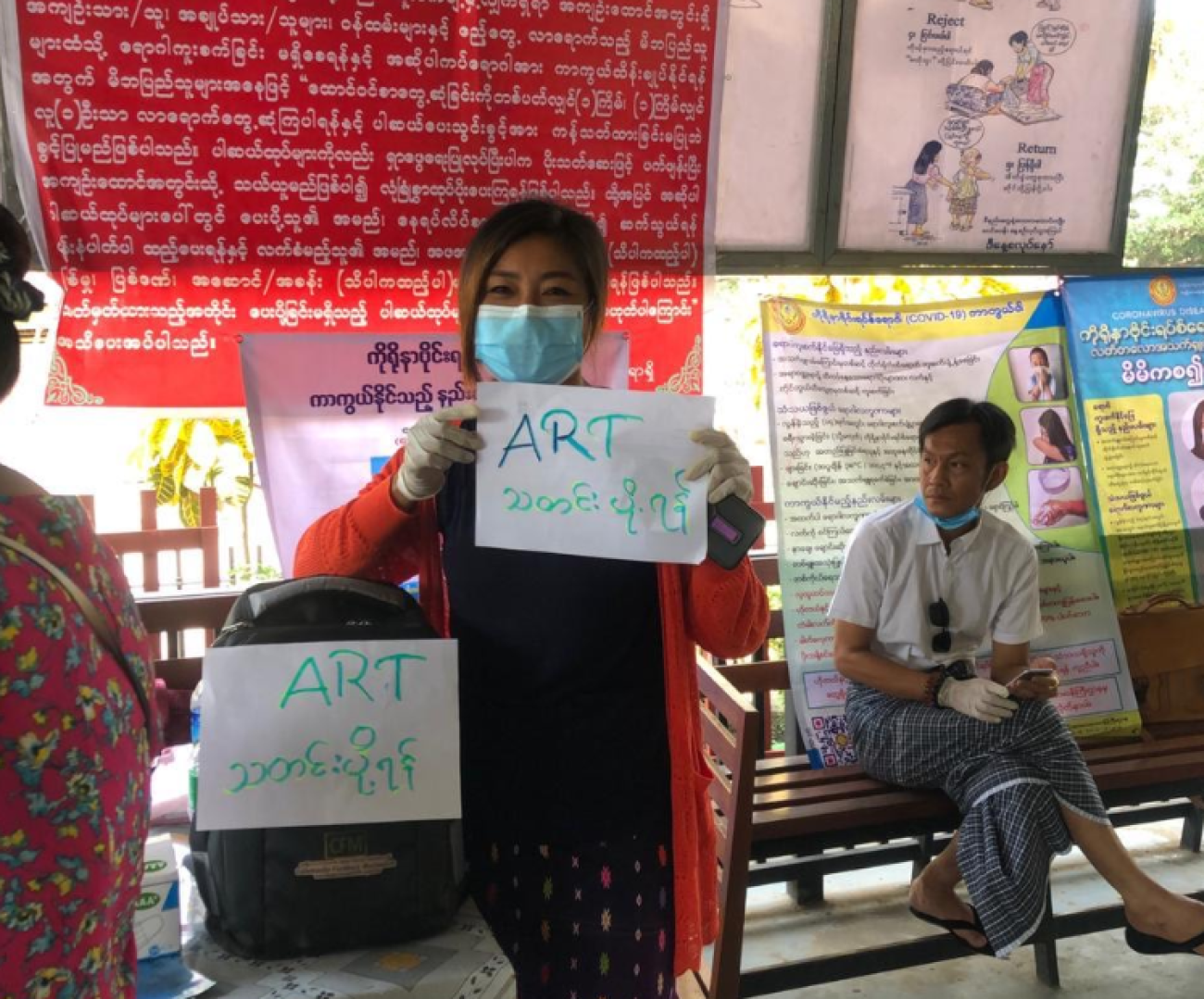New challenges in the times of COVID-19 bring surprising examples of cooperation

The UN in Myanmar has come together as one to support COVID-19 preparedness and response. The article in our series highlights the work of UNAIDS.
The UN Secretary-General Antonio Guterres has said that ending the pandemic everywhere is both a moral imperative and a matter of enlightened self-interest. Extraordinary times demand extraordinary measures. We face a colossal test which demands decisive, coordinated and innovative action from all, for all. In Myanmar, the UN Country Team representing more than 20 agencies is supporting COVID-19 preparedness and response.
UNAIDS is leading the global effort to end AIDS as a public health threat by 2030 as part of the Sustainable Development Goals. An estimated 240,000 persons are living with HIV in Myanmar, with 11,000 new infections (2018). HIV prevalence is currently highest among people who inject drugs in urban and rural areas in northern Myanmar.
COVID-19 poses a threat to the continuity of essential life-saving health and social protection services, including for people living with HIV. Yet troubling times such as these, may also herald surprising opportunities as exemplified by heightened levels of cooperation in Myanmar.
The Joint United Nations Programme on HIV/AIDS – UNAIDS - unites the efforts of 11 UN organizations—UNHCR, UNICEF, WFP, UNDP, UNFPA, UNODC, UN Women, ILO, UNESCO, WHO and the World Bank.
UNAIDS is maintaining its support to the Myanmar national HIV response which is currently reaching 77% of all people living with HIV with treatment, as well as ensuring prevention and continuing care for those with increased HIV-related risk, such as people who inject drugs, men who have sex with men, transgender persons and those involved in sex work.
With assistance from UNAIDS, WHO and other partners, the Ministry of Health and Sports’ (MOHS) National AIDS Programme established a Rapid Response Team to address HIV and COVID-19 related gaps in services. Immediate measures were taken to ensure that multi-month supply of life-saving Antiretroviral Therapy (ART) is available without interruption to people living with HIV as well as that substitution therapy is ensured for people who use drugs during this period.
On the occasion of a presidential amnesty to prisoners on the Myanmar New Year, one of the largest releases of prisoners took place in April 2020 involving around 25,000 prisoners being released. Out of concern for continuity of care, exceptional coordination took place among health officials, NGOs and community networks. Representatives of people living with or those affected by HIV assisted and counselled 760 newly-freed prisoners living with HIV to ensure continuity of ART in the context of a range of measures taken to mitigate the risk and impact of COVID-19.
Also, and following the closure of land borders in response to COVID-19, exemplary cross-border cooperation was witnessed on HIV on the Indian and Thai-Myanmar borders. UNAIDS, WHO, the Myanmar Positive Group (MPG) as well as other partners supported the linkages between Medecins Sans Frontieres - Holland based on the Indian-side of the border to ensure that Myanmar citizens, previously receiving ART there, were integrated into the public health sector in Myanmar. While on the Thai border, the MOHS Myanmar ensured referrals and continuity of treatment among returnees. Exceptionally, coordination between the Thai and Myanmar health authorities also ensured the provision of ART to Myanmar citizens residing on the Thai-side of the border.
Finally, and in order to ensure continuity of services, a total of USD 5.4 million has been mobilized from the Global Fund for AIDS, Tuberculosis and Malaria to ensure mitigation and preparedness of HIV-related services as well as social support to reduce impact of the pandemic on communities.
By contrast, and for more immediate needs, UNAIDS is assisting in the development of a Rapid Response Fund which intends to support the health and social protection needs of those in vulnerable circumstances during the COVID-19 crisis.



